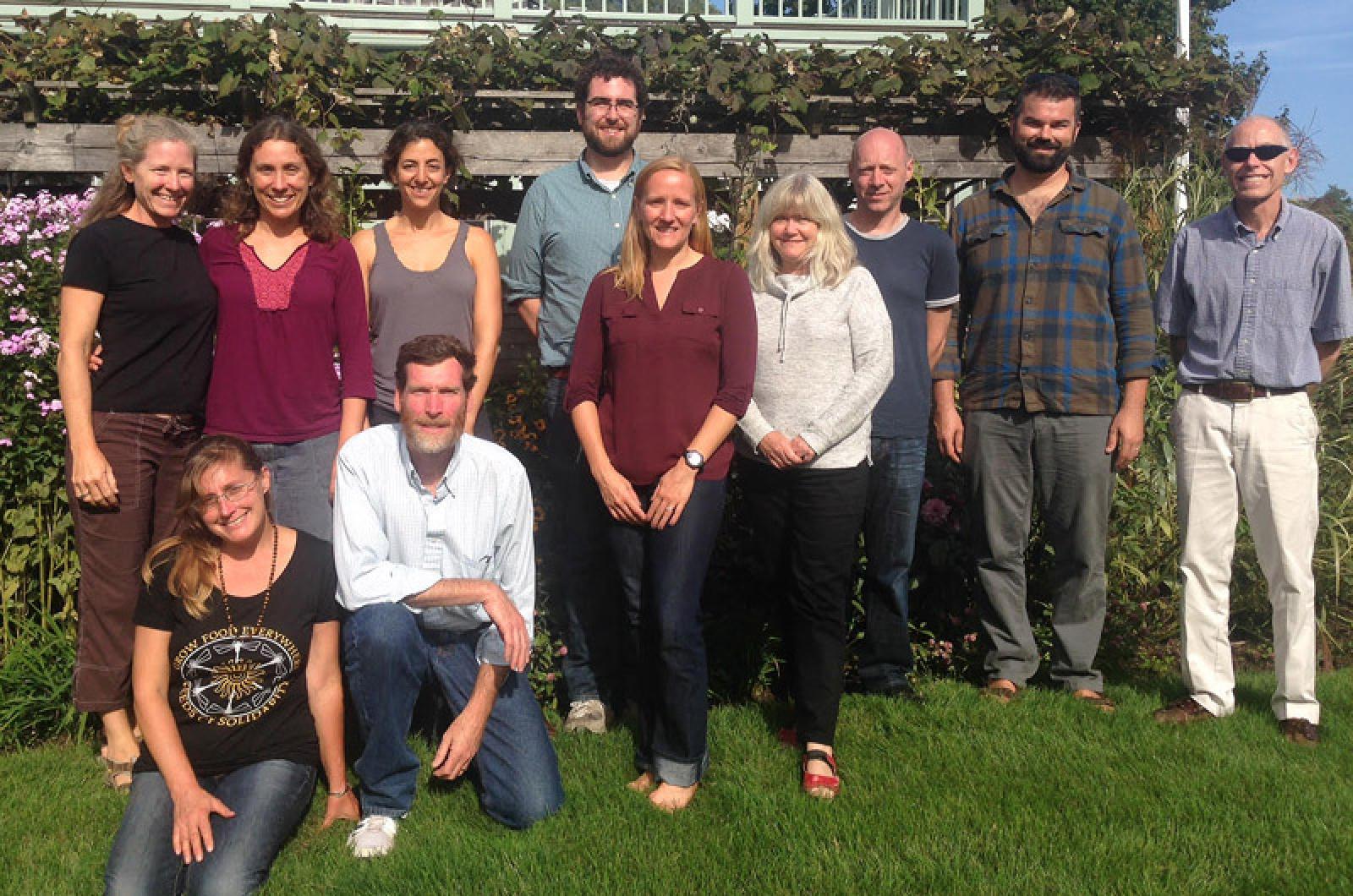At the end of September, Island Grown Schools brought a group of 10 farm to school leaders from across the state to the Vineyard for a two-day summit to strategize state level policies that could support and spread farm to school programs across Massachusetts.
Representatives from the Department of Agricultural Resources, UMass Extension, Green Schools, Massachusetts Farm to School Project, the Western Mass Food Processing Center (a food hub based in Greenfield), School Sprouts (a school garden education organization based in Holyoke), and Brookline Public Schools all participated in the summit.
At IGS, we are eager to help make the hands-on learning in school gardens, healthy food in school meals, and in-class learning about nutrition and the food system that we bring to Island kids accessible to all children in Massachusetts. The new policy network we began forming at the policy summit is another step toward creating the state level support we will need to make that dream a reality.
Island Grown Schools has been playing a lead role in the effort towards state level policy development, in partnership with the Massachusetts Farm to School Project. We have been inspired by what dozens of other states around the country have done to support their own farm to school programs. For example, in Alaska, they increased the reimbursement funds for school meals when cafeterias source locally-grown ingredients. In Washington, D.C., they helped fund school gardens. In Oregon they created paid positions in state departments of education and agriculture, and in Vermont they provide mini-grants for school kitchen upgrades, school garden educators, and more.
At IGS, we delved into policy work last year in collaboration with high school students at the Martha’s Vineyard Public Charter School. Together with our state Rep. Timothy Madden, we were able to submit legislation that would make October Massachusetts Farm to School Month and would encourage three state agencies (agriculture, education and public health) to form a task force to strategize ways they could support farm to school efforts.
We brought students from both the charter school and the regional high school up to the State House twice last year to advocate for farm to school, and began forming a policy network of people from across the state who were interested in joining us in this cause.
We’ve learned so much in this year of legislative work, including that a huge volume of bills are submitted every year to the legislature, and it’s hard to get any of them through all the steps and hurdles between being drafted and becoming a law. We have also learned that legislation is not the only way to reach our goals. At the policy summit last month, we were able to start making the goals of our original legislation a reality, while planning next steps toward broader policy initiatives.
Through the good work of other states, we’ve learned that having designated point people in various state agencies can be crucial in developing an infrastructure to support farm to school programs. State agency advocates can identify funding opportunities and help address and overcome regulatory hurdles. They can also provide training opportunities for teachers to become more comfortable using school gardens as a learning tool, and for cafeteria staff to do more scratch cooking and local food sourcing.
At the summit, the need for agency support came up repeatedly. We realized we already had one agency liaison in the room, David Weber from the Department of Agricultural Resources. Between us, we were able to brainstorm a list of other folks from the departments of public health and elementary and secondary education who could be strong farm to school point people in their agencies. In the weeks since the summit, we have been reaching out to these people, and it feels like the task force we proposed in our legislation with Tim Madden is something we are going to be able to create even before the passage of our bill.
We also discussed the goal from the Madden legislation of making October Massachusetts Farm to School Month. We recognized that this would raise the visibility of the farm to school programs in our state, and bring greater awareness of the benefits of farm to school to our legislators. David said that he could go straight to the governor’s office to request a proclamation to this effect. I forwarded him the language for the creation of Mass Farm to School Month that we had drafted with the charter school students last year, he forwarded it along to the powers that be, and Governor Baker signed on. October 2015 is officially Massachusetts Farm to School Month!
It has been exciting to see firsthand how the legislative process works, and the power that we have to be active participants in our democracy — even those who are not yet old enough to be able to vote themselves. It has also been empowering to find other ways to move things forward on a state level, and to know that legislation isn’t the only way to make change. We look forward to seeing how our advocacy for farm to school, influenced and informed by students here on the Vineyard, will develop in the years to come.
Noli Taylor is director of Island Grown Schools, a program of the Island Grown Initiative.




Comments
Comment policy »